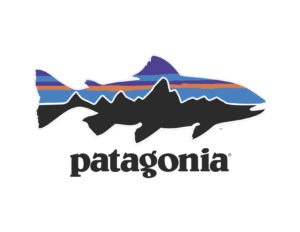On a LinkedIn discussion board, someone asked, “So, why has bettering the world become a mantra for a new generation of entrepreneurs?”
This sparked a very lively discussion, mixing the cynics and the optimists.
You can view this discussion here (you might have to join the group first).
My first comment was quick and straightforward, discussing my new work at Business For a Better World:
I’m 57 years old, been in business since 1981, and my business has *always* been about fostering a better world. This year, I took it further, beginning a campaign to show business how solving hunger, poverty, war, climate catastrophe, etc. is not only the right thing to do, but can be highly profitable (and we actually already have a lot of the technology to make it possible).
But as others responded, I felt a need to go deeper, and I want to share my responses to two of them with you:
Tim asked, “…If these entrepreneurs are so hot on giving to humanity, why not put their technologies in the public domain? There’s a topic for debate: Which is the better outcome, the Gates Foundation or Wikipedia?…”
Tim – great question! The Gates example has always interested me, in that it follows the pattern of 100-150 years ago, when predatory ubercapitalists like Carnegie and Rockefeller began to seek out a higher purpose later in life and became uberphilanthropists–yes, some of Microsoft’s practices were quite predatory under Gates’ leadership. I can’t think of an equally prominent example in the years between the “Robber Barons” and Gates. (I also think Melinda may have had a lot to do with Gates finding HIS higher purpose–but he has fully embraced it and discovered it provides meaning in his life.) Most towns in my area of New England are still using little public libraries built with Carnegie money.
Warren Buffett is another very interesting example, but his choices and motivations, I suspect, were very different. Buffett never seemed to care personally about accumulating wealth to “better” his own life. He still lives in the simple ranch house he bought in the 1950s. And as far as I know, Berkshire Hathaway under his leadership was not a predatory company. It didn’t shock me when he gave away most of is fortune–to the Gates Foundation (which kind of brings this discussion full-circle).
But I propose that it is possible to be socially conscious from the get-go AND do quite well financially, and that getting wealthy is not a sin. Prominent examples include ice cream superstars Ben Cohen and Jerry Silverman, Yvon Chouinard of Patagonia, Anita Roddick of The Body Shop, and many others. I suspect the Chicken Soup guys (Jack Canfield and Mark Victor Hansen) are in this category; they do not shy away from the trappings of wealth–but they also find many ways to use their wealth to better the world. Jack I know for sure started from very humble beginnings; I have no clue about Mark’s early years, nor can I quickly find anything in public sources.
Jennifer commented, “…The world is in crisis – how do we milk it for all it has now people are focusing on the bad guys that have put the world in crisis. ‘We make the world seem like we care’ – new market. But hang on – ‘we kind of do care – well some of us anyway’ – but hang on ‘the global village concept doesn’t seem to be working’ – Ok; so now what?
Let’s make the world betterment program a thing for entrepreneurs – get rich while you increase people hopes even though those hopes are false…”
Jennifer – Yours is one of several cynical posts in this discussion, but yours is ambivalent while the others are pretty much set in stone. So I choose to engage with you. I think we need to harness the cynicism and skepticism about business’ ulterior motives to create the action we want, despite our suspicion of their motives. For me, seeking personal wealth has never been as important as making the world better. My millionaire colleagues would laugh at my income. Let them laugh! As long as I can motivate them to make a difference.
I am personally very cynical about the ability to solve our biggest problems–hunger and poverty, war and violence, catastrophic climate change–based on the ways we’ve always done it. Too often, we’ve tried to motivate on guilt, fear, and shame–and it doesn’t work.
So I’m taking a leaf from the libertarians and ubercapitalists and attempting to motivate based on self-interest. If your goal is personal material wealth and I can show you how to realize that goal by seizing the opportunity to make money, and the work that governments and NGOs have failed to do gets done, then fine, take your fortune and go live in your big house. Think about a super-profit-driven company like Walmart: not exactly a tree-hugger hangout. But Walmart realized years ago that there was a lot of money to be made selling organic foods, low-watt lightbulbs and other green products–and a lot of money to be saved implementing green into its own operations, deeply. I have many issues with Walmart in other areas, but on the environment, I give them BIG props. Working from the profit motive, they have done more to spread green consciousness *and* green *practices* through society than I have in a lifetime of speaking and writing and consulting.





